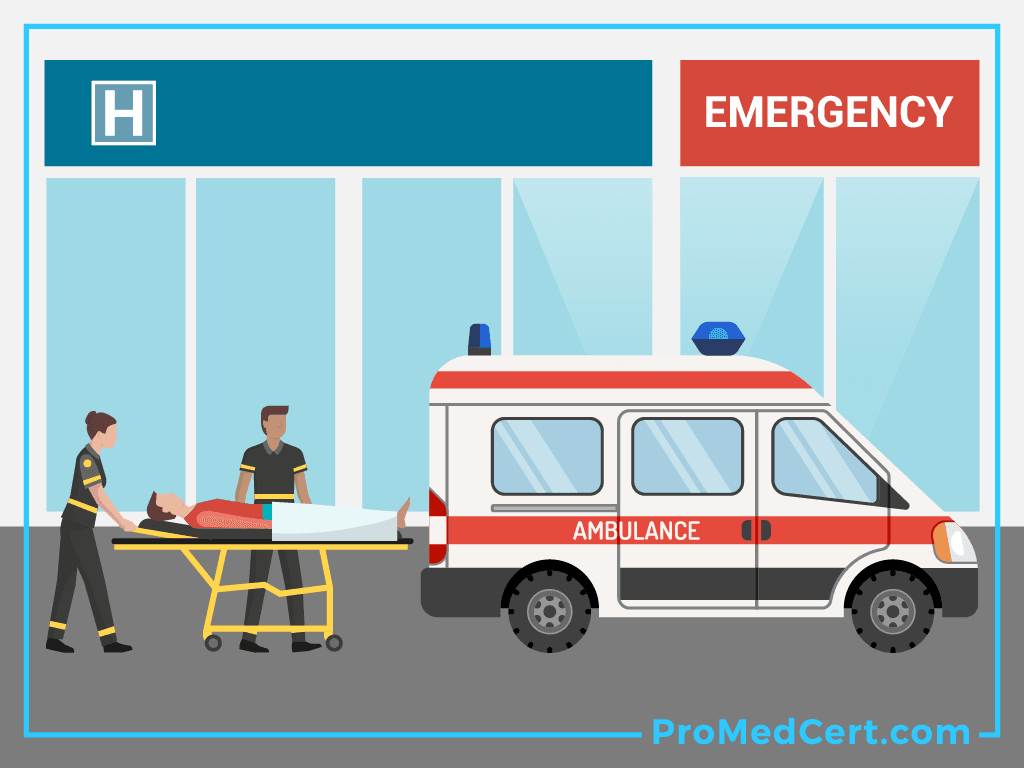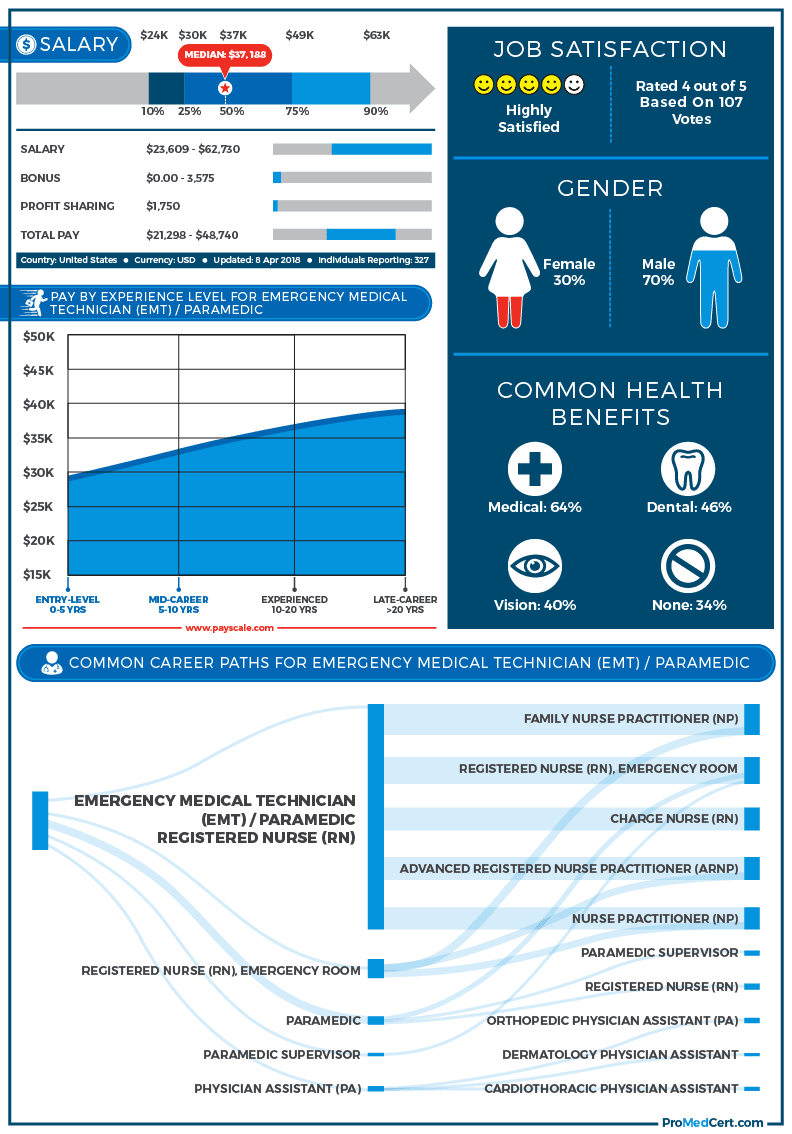Should You Become an EMT?

After several years of economic uncertainty, the emergency medical technician (EMT) field is bouncing back in a major way.
In fact, experts are projecting a continued growth rate of 15% between now and 2024, much faster than the average for all occupations.
If you’re considering a career in the medical field, becoming an EMT, paramedic or other emergency medical service (EMS) professional is a great path to take.
Before making that choice, however, it’s important to have a clear understanding of what an EMT position entails to determine whether the job would be right for you.
The Role of an EMT

Services performed by an EMT vary greatly.
Generally speaking, EMTs are responsible for delivering urgent and acute medical care outside of a hospital or physician’s office setting.
They are essentially the first responders to the scene of a medical emergency, which is why they often arrive in ambulances.
The surprising truth, however, is that fewer than half of all EMTs in the workforce today actually work for companies that provide ambulance service.
The majority work directly for hospitals or for local governments.
The Day to Day of an EMT

The EMS workers portrayed on television and in movies make the role out to be fast-paced, exciting and in many cases even somewhat glamorous.
In reality, the day-to-day duties of an EMT are much more mundane.
Unless they happen to work in a heavily populated area with a high number of emergency situations, a good portion of an EMT’s day involves filling out paperwork, managing inventory and waiting on calls.
EMTs may also be called upon to assess patients who are not necessarily experiencing a medical emergency. And, in many cases, an EMT may arrive on a scene only to discover their services aren’t needed at all.
This isn’t to imply that emergency medical technicians lead boring lives.
In fact, EMTs are credited with saving thousands of lives each year.
It’s just to point out that not every call will get your adrenaline pumping.
Some may be as simple as assisting someone who is feeling faint or dizzy or treating a wound that is much less severe than originally anticipated.
The routine side of the job is rarely depicted on TV and in the movies. But those interested in becoming an EMT should have a realistic picture of what to expect.
EMT Benefits & Salary

Credentials Needed to become an EMT

As with most medical industry positions, those interested in pursuing a career as an EMT are required to complete courses of study and maintain certain credentials in order to perform their work duties.
To start, prospective EMTs must have a high school diploma and become certified in first aid and life support.
Most employers require ACLS and/or PALS certification as a foundation.
Additional training is also required, dependent on the exact position being sought as well as requirements of the employer.
Conclusion
Determining whether a career as an EMT is worth pursuing is a personal decision.
It’s a role best suited for those who enjoy helping others, can thrive in urgent situations or tense environments and possess excellent listening and problem-solving skills.
If this describes you and you’re considering making a career move, you can get started as early as today by enrolling in your online medical certification course.
This should provide you with a leg up when it comes time to take the next step.

